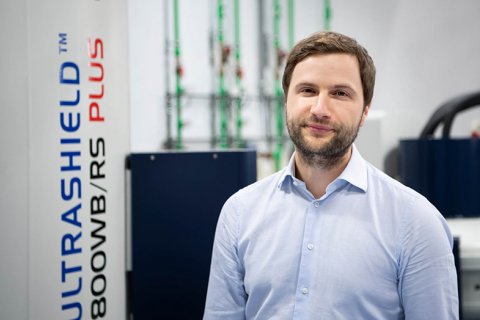Markus Weingarth
Associate Professor, Chemistry

I'm a specialist in mechanistic studies of antibiotics. Our research aims to understand how antibiotics kill bacteria. The ultimate goal is to visualize at atomic level how antibiotics target their receptors in the bacterial cell. With this knowledge we may be able to make better antibiotics that can help to ward off the current antimicrobial resistance crisis. It’s easy to see how this could have a real and lasting impact on the future of all human beings.
The thing that excites me most is the success of my students
The thing that excites me most is the success of my students. Utrecht is known for being really strong in Biomolecular Sciences and I am lucky to have some incredibly bright minds in my group. And they are lucky to have the backing of a truly supportive university. Every time one of them wins a prize or gets published in an important journal it reminds me why I signed up for this job in the first place. Research is a team effort and it feels really good to inspire the next generation to new heights.
Of course, my colleagues beyond my group and department are also essential to our research. We couldn’t address any of the big questions without them. A lot of our work deals with scientific problems at the interface of structural biology and biomedicine. To find answers to these problems we need input and expertise from bright minds in Pharmaceutical Sciences, Biological Sciences, and Medicine. I relish the culture of true interdisciplinarity at Utrecht. It makes it so much easier to tackle those challenges.
Let me give you an example of what this collaboration can look like. One of our challenges is delivering drugs to a particular cell within the human body. As you can imagine this is a really complicated research subject. We were lucky to be able to team up with professor Enrico Mastrobattista from Pharmaceutical Sciences. Combining his expertise on drug delivery and our knowledge of structural biology we were able to crack a code that could significantly facilitate the administration of drugs.
I knew I could make a difference soon after I got here.
I was working in Paris before I came to Utrecht. Moving here was easy – the University helped to prepare for our stay here in Utrecht. This easy transition meant that I could really apply my mind to my science. I knew I could make a difference soon after I got here. When we started our research on antibiotics, I realized that antibiotics researchers in other parts of the world couldn’t answer some of the questions that we could answer. I felt that our approach of using structural biology to understand how antibiotics work in cellular conditions (i.e., in medically relevant conditions) was really quite unique. My hunch has been proved true in recent years by the increasing number of collaborations we’ve had with chemical biologists and medical scientists.
Fundamental research is all about discovering new knowledge that will become a permanent addition to how we understand the world.
Fundamental research
Our state-of-the-art facilities have helped a lot too. We have an array of excellent NMR machines on site and we are part of the ‘national ultrahigh-field Nuclear Magnetic Resonance (uNMR-NL) facility. For example, we host a 950 MHz machine that can be used for solid-state and solution NMR, and even micro imaging. And we are looking forward to the installation of one of the world’s first 1.2 GHz NMR machines, which will be a spectacular piece of equipment. Not many scientists in our field can rely on having this kind of equipment at their home base.
At the end of the day, fundamental research is all about discovering new knowledge that will become a permanent addition to how we understand the world. And that’s what’s makes it so powerful. Asking about the mechanisms of infections and diseases work can help us to cure them. It doesn’t get better than that, does it?

